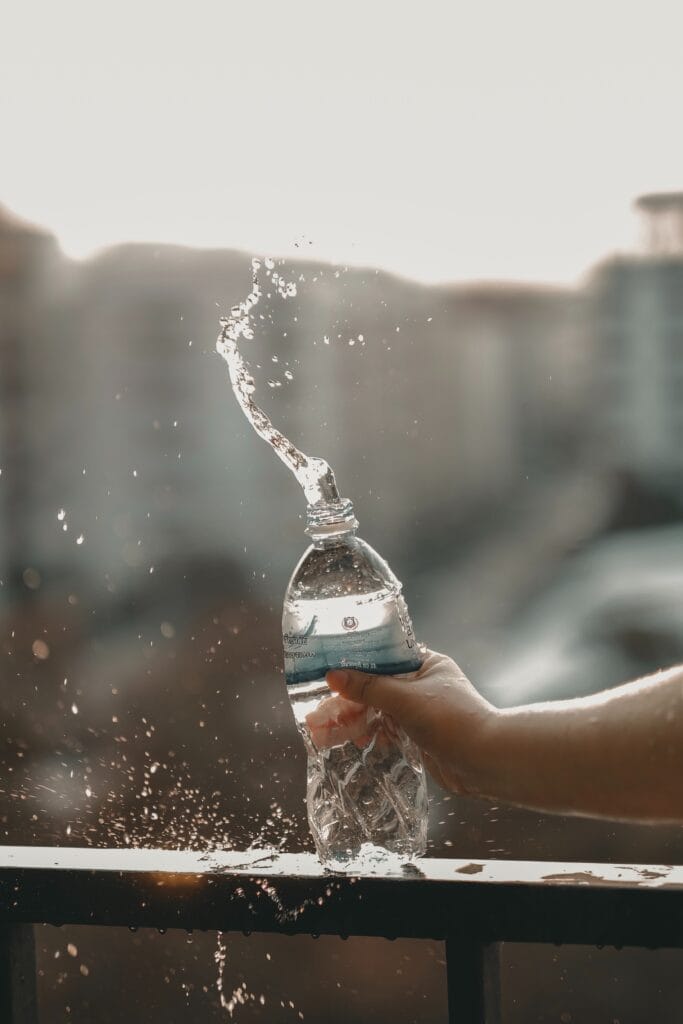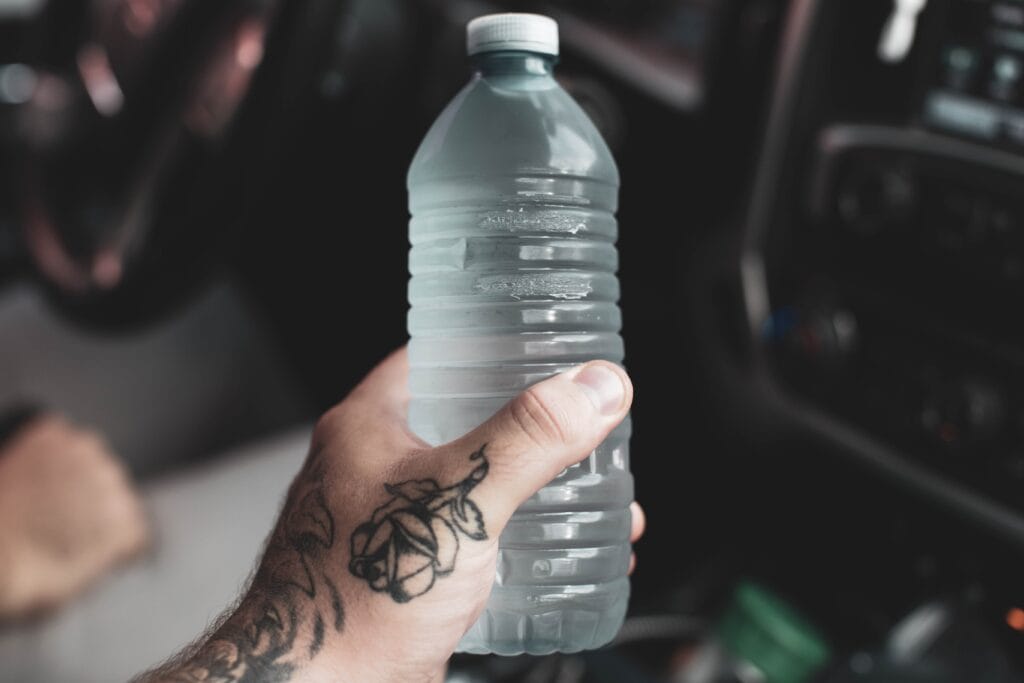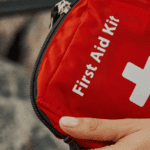Can water turn bad? Most people take the availability of water for granted. Unfortunately, the truth is that bacteria, pesticides, and other pollutants contaminating water can make it go bad. Distilled water usually lasts for about two years. However bottled water has a one-year shelf life, but tap water lasts up to six months. Plastic bottles may leach hormone-like compounds over time, but the FDA does not impose a minimum time for drinking bottled water. If you worry about ingesting potentially dangerous chemicals, water from BPA-free bottles is your best bet.
Can Bottled Water Expire?
Suppose you grab a bottle of water and see that it has an expiry date from six months ago. Is it necessary for you to worry? The quick response to this question is “no.” But before you start hoarding water without worrying about the expiry date, it’s crucial to understand why there are expiration dates on the water bottled in plastic bottles. The results might surprise you.
When you understand why water bottles have expiration dates, you’ll want to follow specific instructions to properly get rid of old water to safeguard your long-term health.
Last but not least, it’s helpful to know where to look for water bottles that won’t add to the global plastic waste problem or put you at risk for health problems caused by consuming too much plastic.
What Happens if You Drink Expired Water?
You may believe you’re helping your body by grabbing a cold water bottle when the temperature outside soars. But did you know that studies have shown that hotter days cause water to become contaminated with harmful plastic compounds more quickly? As a result, it’s crucial to keep bottled water cool and out of the sun.
Even if you can’t get your hands on clean water in secure containers, it doesn’t mean you should go without it. The availability of water is essential for human survival. Therefore, choosing your water bottle with care will have a beneficial effect on your health. So the next time you find yourself thirsty, consider bringing your reusable water bottle rather than grabbing the first plastic bottle you see.
Consider the health risks of drinking bottled water from plastic bottles to convince you to plan and bring your reusable container. Overexposure to plastic can lead to a variety of negative health effects, including but not limited to the following:
- Exposure to a Metabolic Disorder
- Obesity
- Reproductive and developmental impacts, including low birth rates
- Incorrect levels of hormones
- Contracting cancer
- Abnormally low immune response
 How to Properly Store Bottled Water
How to Properly Store Bottled Water
We discussed how the storage conditions significantly impact how long bottled water will last. Storing your bottled water correctly can protect it from contamination and extend its shelf life.
Keep the water bottles in a cool, dry area. This eliminates the risk of heat stroke and stabilizes the water’s temperature, which is an important safety consideration.
Ensure the bottled water is kept away from direct sunlight as an extra precaution.
FAQs
1. What to do if your bottled water is expired?
Examining how you currently use plastic may help reduce your exposure to hazardous substances. While it may be unrealistic to expect to live a plastic-free existence, even reducing your current exposure level will positively affect your health. Hence, we advise you never to risk drinking expired water.
Using reusable utensils made of ceramic or metal in place of plastic is one simple way to reduce your use of plastic while hiking. To lessen the amount of plastic leaching into the food, if you can’t afford to switch, at least wait until the meal has cooled before storing it in plastic containers.
Another way to reduce your use of plastic water bottles is to use glass or metal ones. Using plastic water bottles for drinking is a common way for people to consume harmful chemicals unknowingly. Therefore, it’s essential to find alternatives that will improve your health. Knowing that some bottling facilities follow safer, cleaner practices is reassuring.
Avoid using plastic bottles because they can cause several health issues. Purchasing high-quality bottled water in reusable containers has many advantages, such as better health and cost savings. It is now clear that switching from drinking only bottled water will benefit your health.
2. How does bottled water go bad?
Even though drinking water that has passed its expiration date is safe, it’s important to understand why this is the case. As it turns out, the water itself is less of a health threat than the plastic bottle it is kept in. This is especially true if these bottles are exposed to excessive heat. Polyethylene terephthalate (PET) is often used for retail bottles, whereas high-density polyethylene (HDPE) is the material for water cooler jugs. The most concerning thing about these bottles is that they might contaminate the liquid after it expires or after exposure to high temperatures. In addition to altering the water’s flavor, the leaching of these plastics’ hazardous substances can seriously harm the drinker’s health.
Although it is impossible to know when the plastic will leach into the water, many bottled water firms place an expiry date on the bottle to keep you safe. However, most water bottles are exposed to high temperatures within days of purchase. Thereby making the two-year expiration date more of an estimate than a promise. The harmful compounds can leak into the bottles long before the water’s expiry date. To make better judgments about future water bottle purchases, one must understand the health risks of drinking from plastic bottles exposed to high temperatures.
Conclusion
Sparkling water has a shorter shelf life of one year than distilled water. Plastic bottles can cause serious health concerns even though the FDA regulates bottled drinking water. Storing bottled water is another issue, since the FDA does not specify a maximum retention period.
However, over time, the flavor of the water could change due to chemical leaching from the plastic used to bottle it. That’s why it’s best to switch to a safer option and learn how to store bottled water properly. Reusable bottled water is your best option to drink water without worrying about major health concerns.





